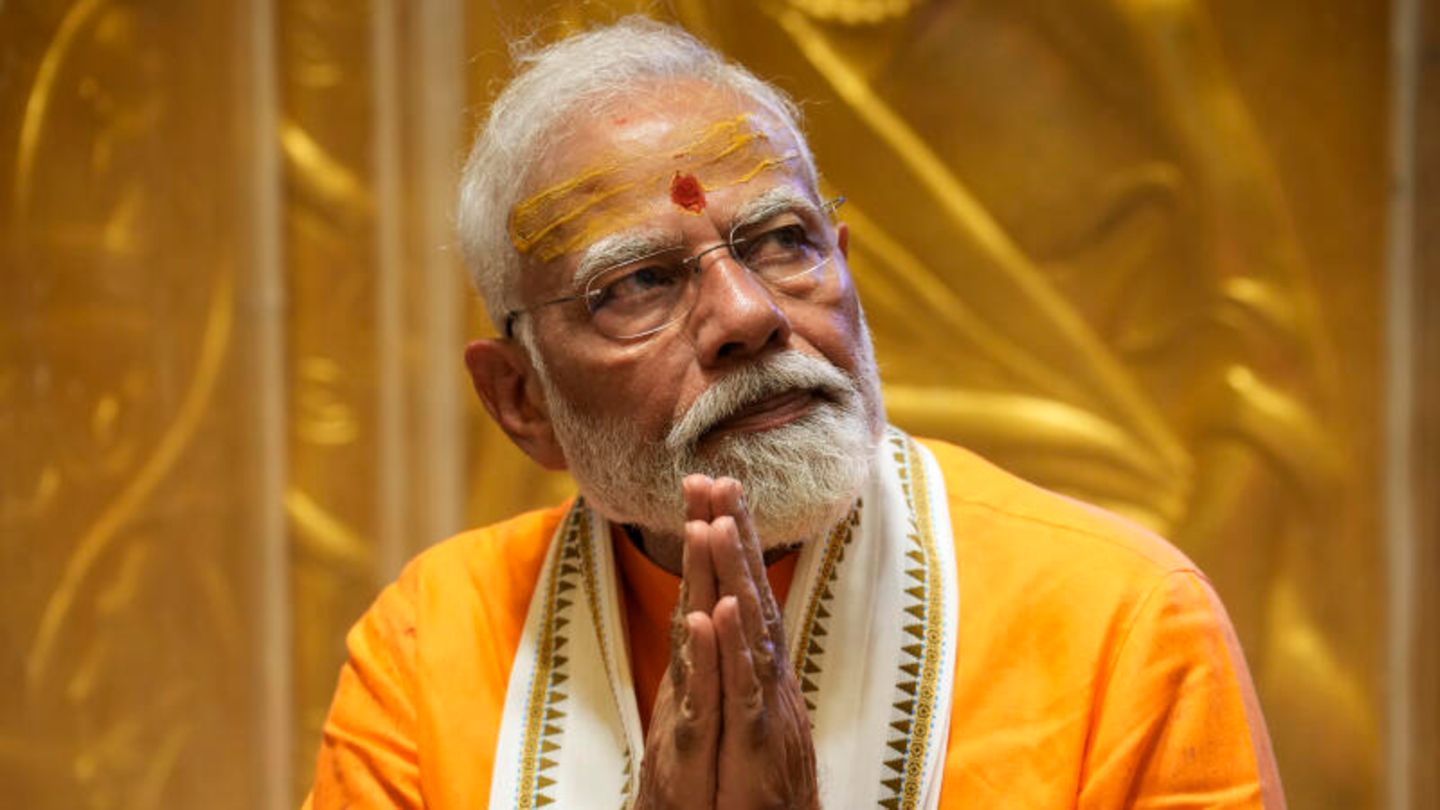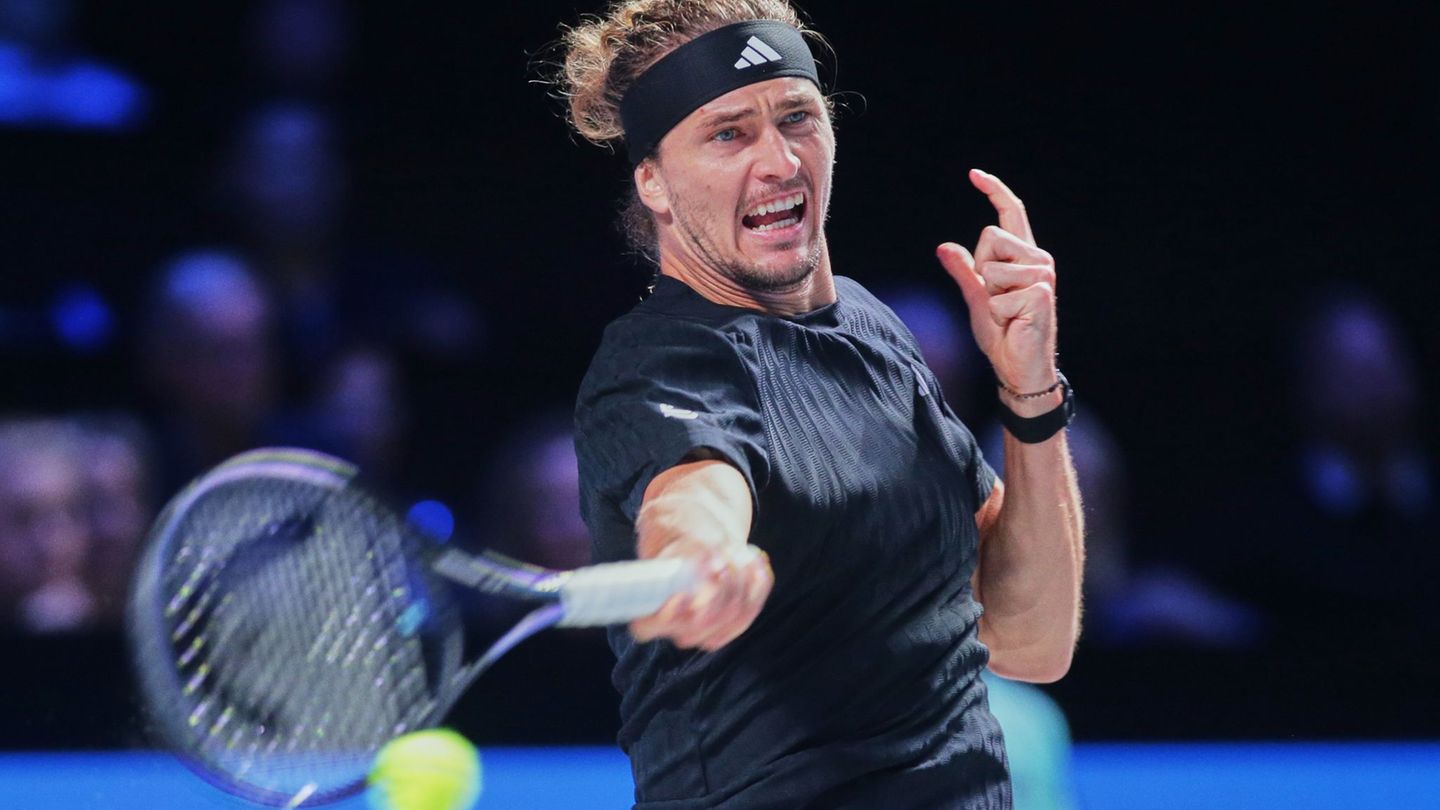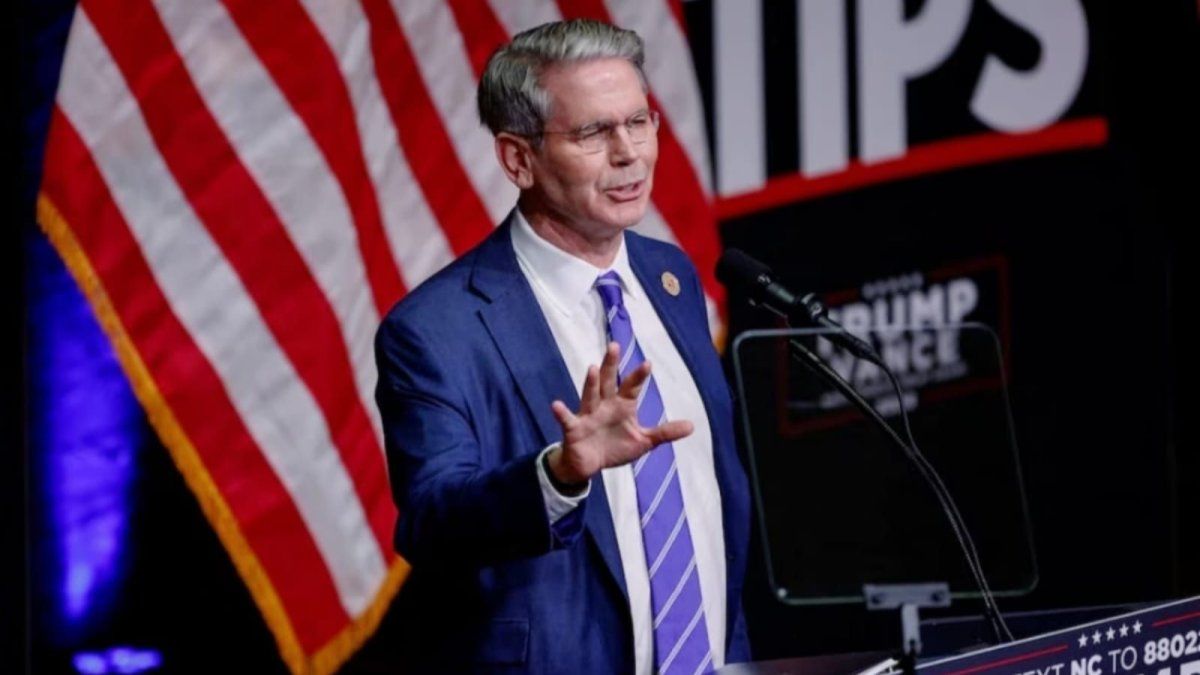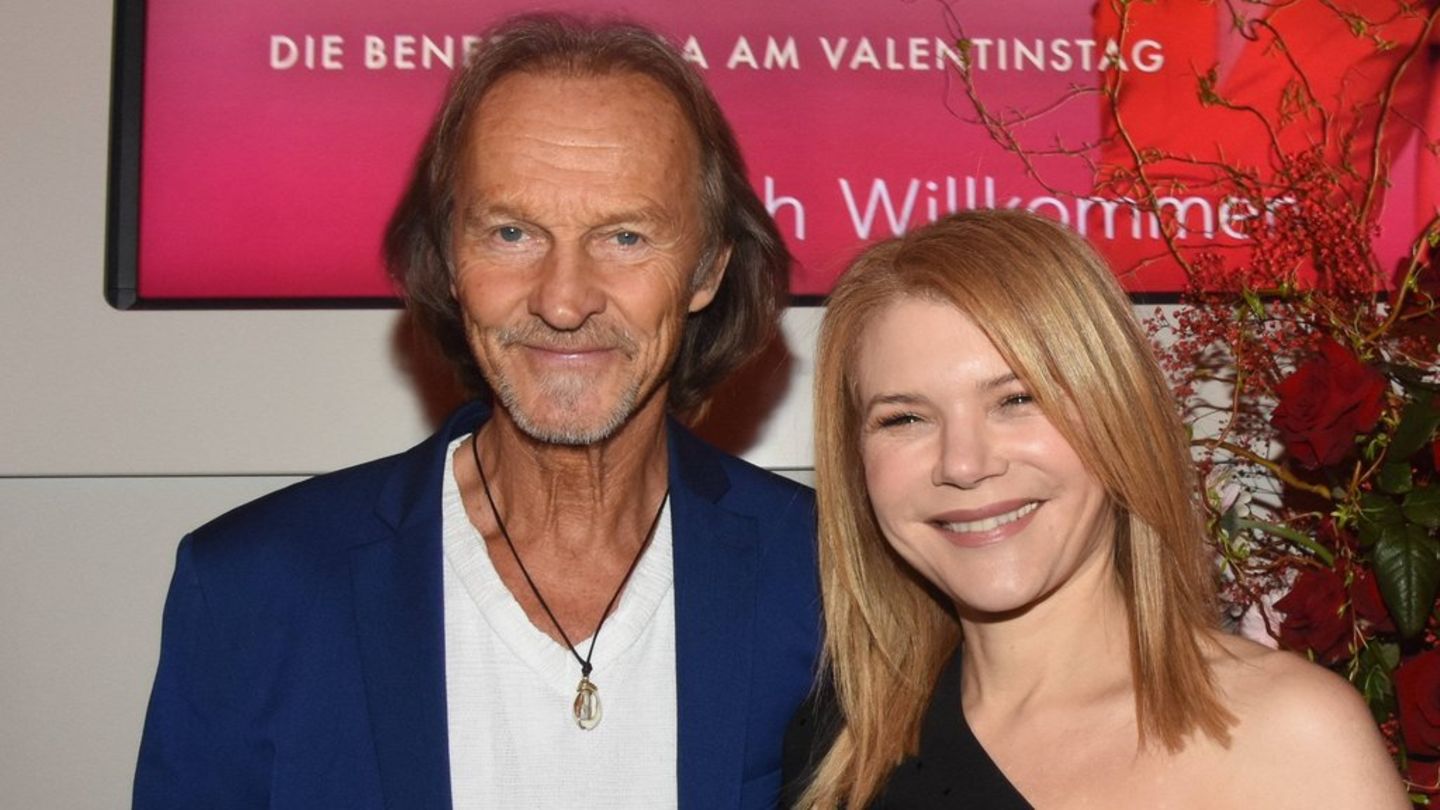India has voted: Contrary to all expectations, Narendra Modi’s Hindu nationalist party has lost its absolute majority and is now dependent on coalition partners to form a government. The opposition is triumphant.
India’s Prime Minister Narendra Modi has declared himself the winner of the parliamentary elections, but his coalition suffered a severe setback. The people have expressed their trust in his government coalition “for the third time in a row,” Modi wrote on X on Tuesday evening (local time). After some of the votes have been counted, his Hindu nationalist BJP is likely to become the strongest party, but will lose its absolute majority in the lower house. This means that it would have to rely on its coalition partners to form a government.
Although it was considered certain that Modi would be able to continue in power for a third five-year term, Rahul Gandhi of the opposition Congress Party did not rule out talks with two of Modi’s coalition partners. The stock market suffered its biggest losses in four years in response to Modi’s defeat.
Hindu nationalist Modi presented himself as a strong man
The opposition camp did unexpectedly well and spoke of a victory for democracy. Modi himself had set the bar high for success in the election campaign: his government coalition would win more than 400 of the 543 seats up for election in the lower house and expand its majority, he said. He clearly missed this goal.
During the election campaign, the BJP relied heavily on the personality cult it had created around Modi. Modi wants to become only the second head of state in the country’s history, after Jawaharlal Nehru, the country’s first prime minister, to rule for three consecutive terms. But instead of expanding his power base as hoped, he is now weakened.
The election campaign was strongly influenced by the Hindu nationalist agenda of the 73-year-old, who presented himself as India’s strongman. He and his party want to make India a state only for the Hindu majority, which makes up 80 percent of the population.
Muslims and other religious minorities are already increasingly being treated like second-class citizens. Modi even described Muslims as “invaders”. He began his election campaign on the ruins of a centuries-old mosque that radical Hindus had destroyed. Like a priest, Modi inaugurated a large Hindu temple there. Modi’s agenda is the exact opposite of the vision of founding father Mahatma Gandhi, who once advocated a strict separation of religion and state.
India: poor country, fifth largest economy in the world
Modi came to power a decade ago with a promise to transform the Indian economy. Since then, the country has changed dramatically. He has invested billions in new infrastructure. New roads, airports and rail links are being built everywhere.
Economic output has almost doubled, and India is now the fifth largest economy in the world, which attracts investors. The country’s economic growth is the envy of the world, and the stock markets are booming. Digitalization is advancing, and mobile networks are cheap. Last year, India even managed a successful moon landing – only the fourth country ever to do so. But there are cracks in the beautiful facade.
Many people cannot find a job, unemployment and inflation are high. According to official figures, around 800 million of the 1.4 billion people are only able to get by on social welfare. Growth is extremely unevenly distributed. The opposition camp around the Congress Party has repeatedly pointed out these conditions – and now it seems that their voices have been heard.
Opposition around Rahul Gandhi warns of erosion of democracy
The opposition did much better than expected. “I am extremely proud of the people of India,” said Rahul Gandhi, leader of the opposition Congress Party. The country’s population has clearly shown that they reject Modi as head of government.
The opposition camp has repeatedly warned of an erosion of democracy under Modi. Even though the Election Commission liked to call the parliamentary election, with almost a billion people called to vote, the “world’s largest democratic exercise,” many are worried. “If Modi’s second term is any benchmark, a third term will not be good for the long-term health of Indian democracy,” said political scientist and South Asia expert Sumit Ganguly of Indiana University in the USA.
“The country’s institutions, which have weathered challenges since their inception, now face existential threats that could disintegrate their democratic core,” he recently wrote in the Journal of Democracy. Modi has centralized power in his office, undermined the independence of the judiciary and media, and pursued his party’s ideological goals with ruthless efficiency, the Foreign Affairs magazine said.
Opposition politician in custody during election campaign
Similarly, the opposition accused Modi of using state organs to silence them. Several opposition politicians were in custody on corruption charges during the election campaign.
Modi also attributed any positive development in his country to his own leadership and took advantage of India’s ever-increasing importance on the world stage. Germany, the USA and other Western states are seeking increasingly closer relations with the subcontinent in the face of an increasingly aggressive China. In doing so, critics say, they are ignoring the fact that India remains neutral in the Ukraine war, buys a lot of cheap Russian oil and maintains good relations with Moscow.
Source: Stern
I have been working in the news industry for over 6 years, first as a reporter and now as an editor. I have covered politics extensively, and my work has appeared in major newspapers and online news outlets around the world. In addition to my writing, I also contribute regularly to 24 Hours World.




